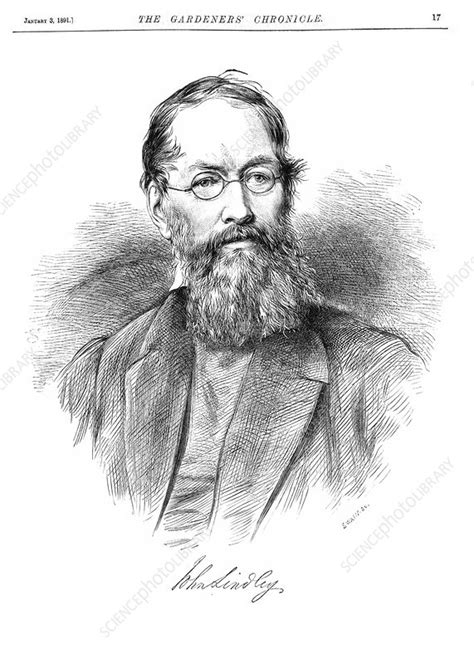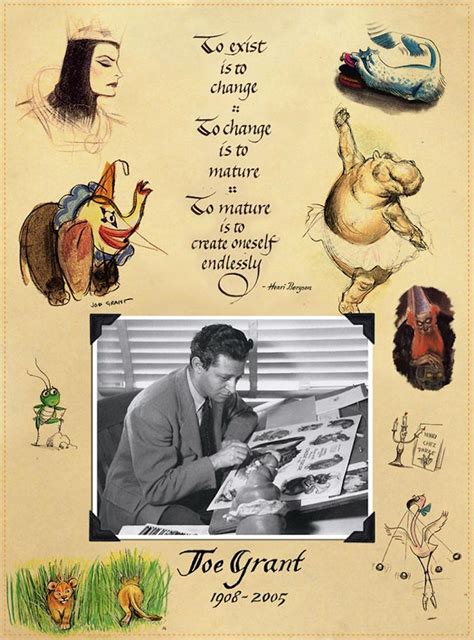A Quote by Dennis Lindley
I believe that almost all important, useful ideas are simple. Peter Whittle has recently put it nicely in an autobiographical essay. "If a piece of work is heavy and complicated then it is wrong." . . . Some writers feel that to express their ideas in simple terms is degrading. Some use complexity to disguise the paucity of their material. In fact, simplicity is a virtue and when, as here, it is both original and useful, it can represent a real advance in knowledge.
Quote Topics
Advance
Almost
Almost All
Autobiographical
Believe
Both
Complexity
Complicated
Degrading
Disguise
Essay
Express
Fact
Feel
Heavy
I Believe
Ideas
Important
In Fact
Knowledge
Material
Nicely
Original
Peter
Piece
Put
Real
Recently
Represent
Simple
Simplicity
Some
Terms
Then
Use
Useful
Virtue
Work
Writers
Wrong
Related Quotes
If we have a simple existence, we shall feel how happy and how fortunate we are. There are some people who are of the opinion that simplicity is almost tantamount to stupidity. But simplicity and stupidity are like the North Pole and the South Pole. One can be as simple as a child and, at the same time, one can have boundless knowledge, light and wisdom.
The ability of nonintelligent people to understand the most complicated mechanisms and to use them has always been to me a cause of astonishment: their inability to understand simple questions is even more astonishing. The general acceptance of simple ideas is difficult and rare, and yet it is only when simple, fundamental, ideas have been accepted that further progress becomes possible on a higher level.
The acts of the mind, wherein it exerts its power over simple ideas, are chiefly these three: 1. Combining several simple ideas into one compound one, and thus all complex ideas are made. 2. The second is bringing two ideas, whether simple or complex, together, and setting them by one another so as to take a view of them at once, without uniting them into one, by which it gets all its ideas of relations. 3. The third is separating them from all other ideas that accompany them in their real existence: this is called abstraction, and thus all its general ideas are made.
People often ask me why my style is so simple. It is, in fact, deceptively simple, for no two sentences are alike. It is clarity that I am striving to attain, not simplicity. Of course, some people want literature to be difficult and there are writers who like to make their readers toil and sweat. They hope to be taken more seriously that way. I have always tried to achieve a prose that is easy and conversational. And those who think this is simple should try it for themselves.
All propaganda or popularization involves a putting of the complex into the simple, but such a move is instantly deconstructive. For if the complex can be put into the simple, then it cannot be as complex as it seemed in the first place; and if the simple can be an adequate medium of such complexity, then it cannot after all be as simple as all that.
As we live and as we are, Simplicity - with a capital "S" - is difficult to comprehend nowadays. We are no longer truly simple. We no longer live in simple terms or places. Life is a more complex struggle now. It is now valiant to be simple: a courageous thing to even want to be simple. It is a spiritual thing to comprehend what simplicity means.
I feel that all knowledge should be in the free-trade zone. Your knowledge, my knowledge, everybody's knowledge should be made use of. I think people who refuse to use other people's knowledge are making a big mistake. Those who refuse to share their knowledge with other people are making a great mistake, because we need it all. I don't have any problem about ideas I got from other people. If I find them useful, I'll just ease them right in and make them my own.
If one writing contributed more than any other to the framework in which this work Sowell's Knowledge and Decisions developed, it would be an essay entitled 'The Use of Knowledge in Society,' published in the American Economic Review of September 1945, and written by F. A. Hayek . . In this plain and apparently simple essay was a deeply penetrating insight into the way societies function and malfunction, and clues as to why they are so often and so profoundly misunderstood.
Creativity is the generation and initial development of new, useful ideas. Innovation is the successful implementation of those ideas in an organization. Thus, no innovation is possible without the creative processes that mark the front end of the process: identifying important problems and opportunities, gathering relevant information, generating new ideas, and exploring the validity of those ideas.
The mind being, as I have declared, furnished with a great number of the simple ideas conveyed in by the senses, as they are found in exterior things, or by reflection on its own operations, take notice, also, that a certain number of these simple ideas go constantly together... which, by inadvertency, we apt afterward to talk of and condier as one simple idea.




































